This year, February 1-7 marks Eating Disorder Awareness Week (EDAW) in Canada and the theme for 2022 is “everyone has a role to play.”
Spearheaded by the National Eating Disorder Information Centre (NEDIC), this week is a chance to dismantle myths, share statistics and learn about the roles everyone plays in eating disorder advocacy.
Personally, I love this year’s EDAW theme. Some people may think that because they haven’t personally been impacted by an eating disorder, that these illnesses aren’t as widespread or harmful as they seem.
In reality, there are approximately 2.7 million Canadians living with a diagnosable eating disorder. That’s about the same amount of people living in the Greater Vancouver area, the third largest metropolitan area by population in Canada! (It’s very likely the number of people with eating disorders is even greater, since that 2.7 million doesn’t include those who are undiagnosed or may not even meet the criteria for an “official” eating disorder.)
That’s all to say that we all probably know someone who suffers from an eating disorder or disordered eating. And through our actions, words and beliefs, we’re impacting them in some way. So why not make that impact a positive one?
Read on to test your eating disorder knowledge and see how you can play a positive role in Eating Disorder Awareness Week!
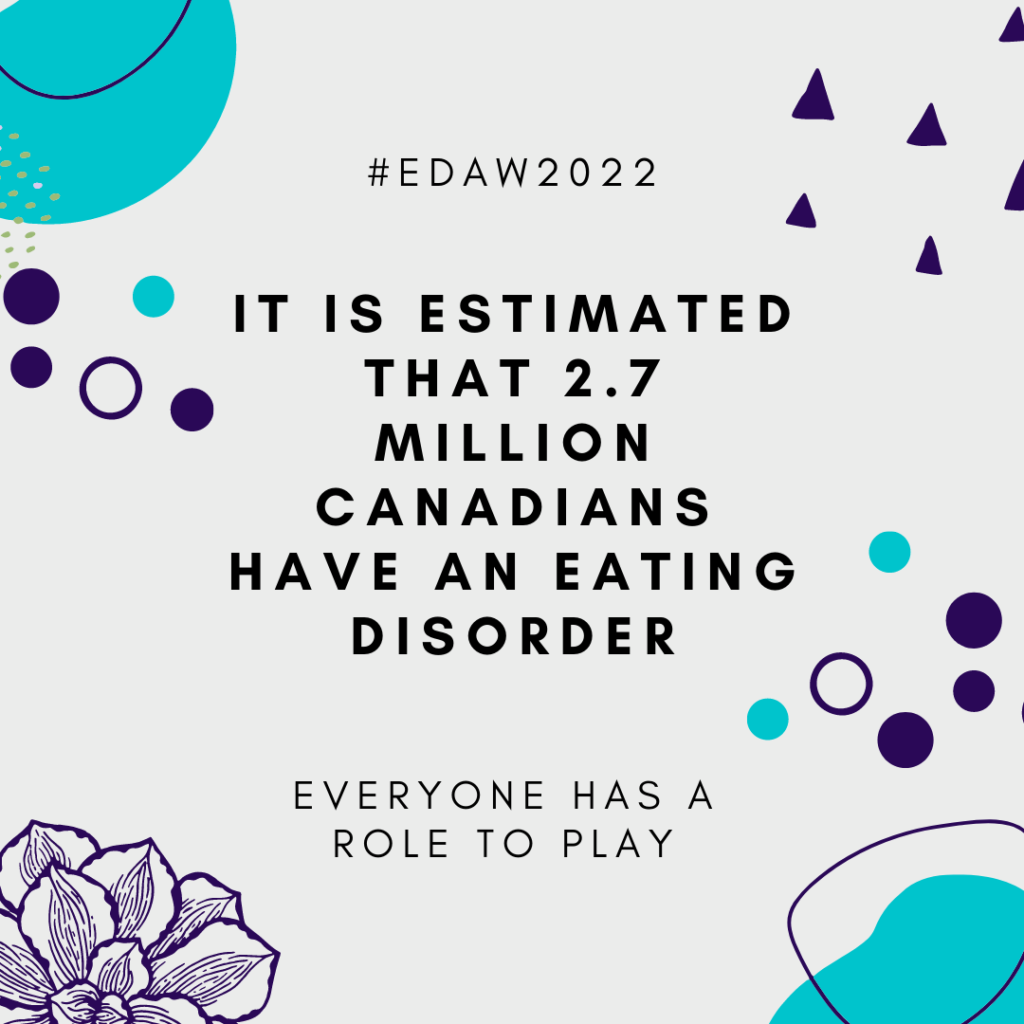
Lesser-known facts about eating disorders for EDAW
Racism is a major issue in the eating disorder community
We know that with eating disorders, Black teenagers are 50% more likely to exhibit bulimic behaviours, like binging and purging. As well, BIPOC individuals with eating disorders are half as likely to be diagnosed or receive treatment.
Representation matters — stereotypes still reinforce the idea that only young, thin, white women are affected by this mental illness. We need to recognize that anyone can be affected, and appearances have nothing to do with it.
In an anonymous survey I conducted from individuals with lived experience, someone also highlighted that there’s a lot of shame around mental illness in the BIPOC community, which may lead to further stigmatization of eating disorders.
Learn more: Shattering the Narrative: 3 Actions To Support BIPOC with Eating Disorders
Eating disorders have one of the highest mortality rates of any mental disorder
Behind opioid addiction, eating disorders are the deadliest mental illnesses, mostly due to high suicide risk and medical complications like cardiac arrest. It’s a heartbreaking statistic that makes headlines each year.
Eating disorders can be chronic, meaning that some people cycle through treatment their whole lives, and this takes a huge toll on their body. Examples of medical complications include dehydration, low iron levels, digestive issues, osteoporosis and kidney failure.
Full recovery is possible and early intervention is shown to make a promising difference. There’s a reason people who overcome eating disorders are called survivors!
Learn more: Why are Eating Disorders Dangerous?
During the first wave of the pandemic, monthly hospitalization for eating disorders nearly tripled compared to pre-pandemic rates
I was one of the people who relapsed badly during the first wave of the pandemic. Although I wasn’t hospitalized, I knew that if I didn’t seek treatment and help soon, there would be devastating consequences.
Alicia Doner-Freire, an Ottawa-based woman, is someone who was hospitalized for her eating disorder, under the severe toll of the pandemic. It turned out to be a traumatizing experience, proving that hospitalization isn’t always the best remedy for eating disorders and why preventative measures are so important.
Learn more: If you haven’t had a chance yet, sign Alicia’s petition to create a separate eating disorder inpatient wing at the Ottawa General Hospital.

One of the most important things we can do during Eating Disorder Awareness Week is show our unconditional support to others.
You never knows who needs to hear this message. Someone in your close circle may be impacted by an eating disorder and after seeing your show of support, they now feel comfortable approaching you.
There are so many different, creative ways to show support for EDAW:
- Sign a petition to demand change, like the one Alicia started
- Wear purple on Purple Up Friday, taking place on Friday, February 4th, to raise awareness for EDAW
- Consider attending an online event, which are being held all across Canada
- Be mindful of the language you use. For me, “binge-watching” is a triggering, uncomfortable phrase that evokes memories of uncontrollable periods of binge-eating. A great rule of thumb is to avoid commenting on other people’s bodies and eating habits!
- Check out these websites for further resources: Body Brave, Bulimia Anorexia Nervosa Association, Eating Disorder Support Network of Alberta, Hopewell Eating Disorder Support Centre, National Initiative for Eating Disorders, Sheena’s Place, Waterloo-Wellington Eating Disorders Coalition
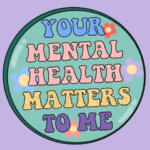
Even reading, sharing or commenting on this blog post is a show of support for those going through eating disorders. I can attest that every piece of feedback is a reminder to keep fighting against the eating disorder voice.
During times that feel uncertain and chaotic, let’s choose to play a positive role in the lives of those impacted by eating disorders!
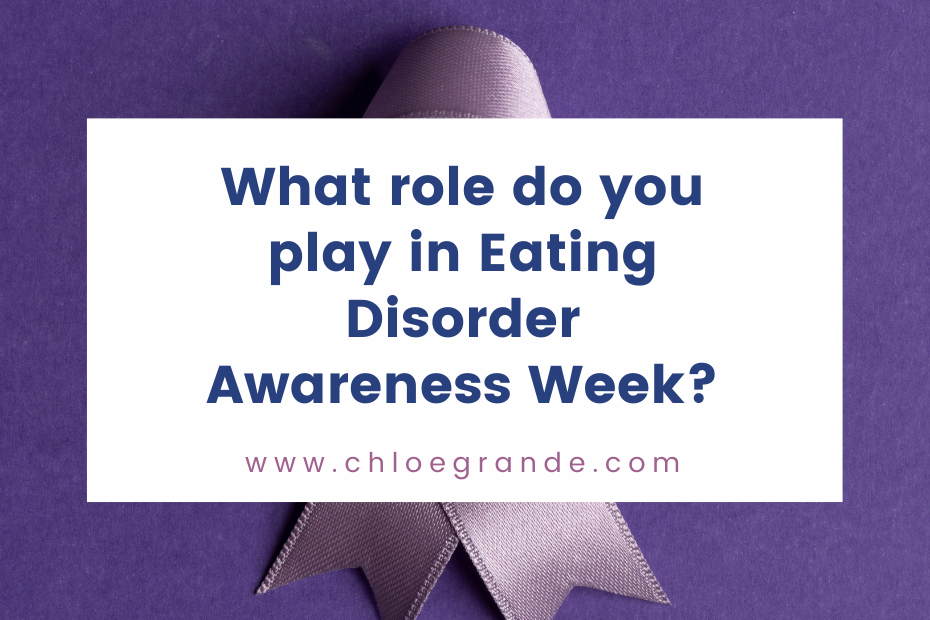
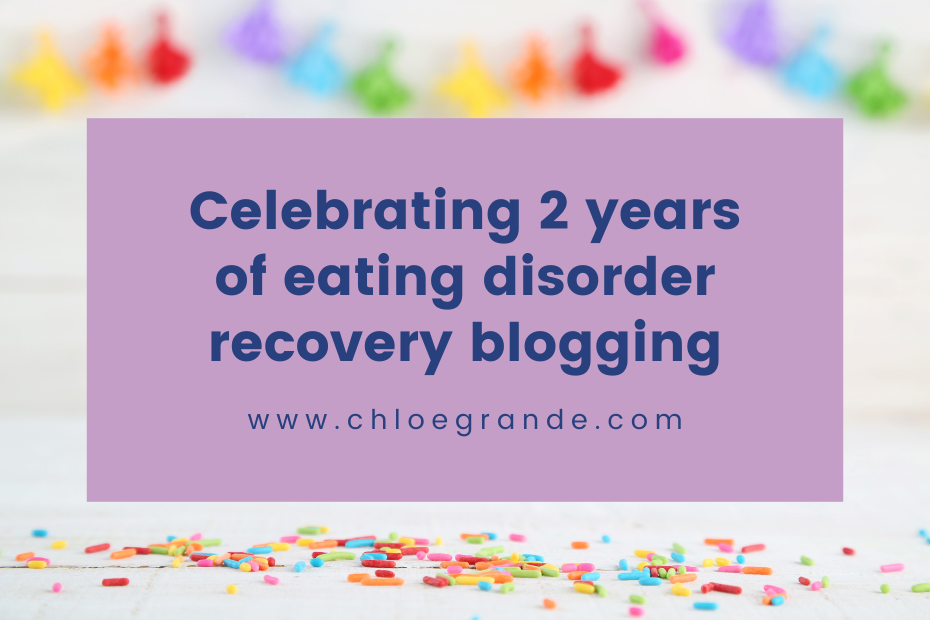
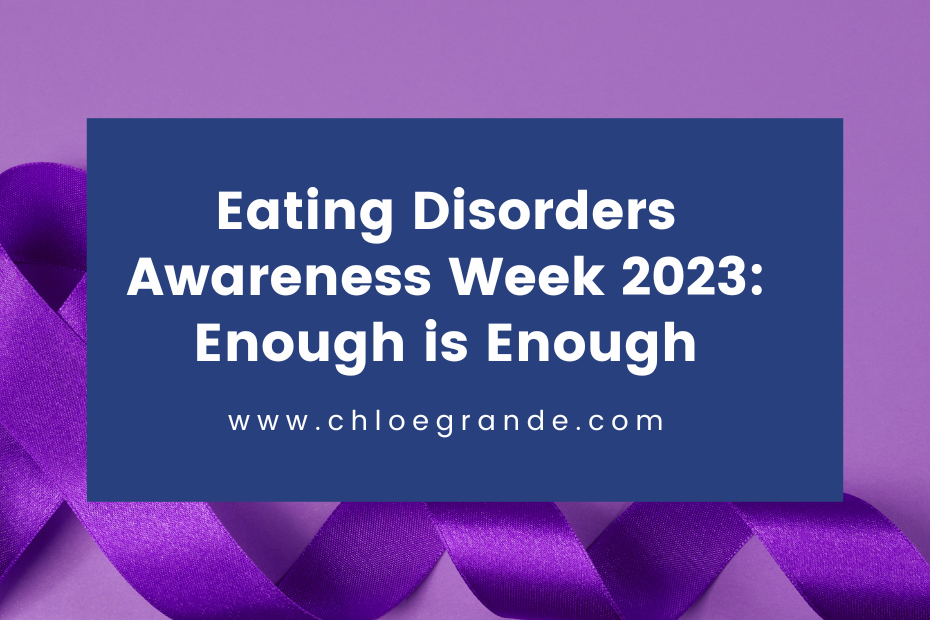

Great information! I’m definitely going to make a few changes by diverting conversations away from dieting and people’s bodies.
Awesome, that’s great to hear! Thanks for playing your part in Eating Disorder Awareness Week and beyond, Kira.